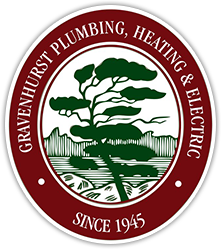Click here to Subscribe to Chips Tips Blog
Conditioner vs Geothermal AC: Which One Is Best?

Conditioner vs Geothermal AC: Which One Is Best?
After last year's epic heat wave, it is safe to say that air conditioning has become a hot topic in Ontario.
Already, some parts of North America are experiencing temperatures 25 to 40 degrees higher than the historical average. Here in Ontario, our upcoming summer forecast is expected to be stormy, humid and swelteringly hot.
Will it be too hot to go without air conditioning here in Ontario this summer?
We don't know the answer to that yet. But what last year's unexpected pandemic taught us is that it isn't safe to wait and find out. We can't spend another summer sheltering in place without AC.
In this post, learn about three of the most popular residential and commercial air conditioning options and identify the one that is best for you.
All Types of Air Conditioning Are Not the Same
One of the biggest air conditioning questions our service technicians are discussing right now with customers is about what type of AC unit is best.
The good news here is, you have several different types of air conditioning HVAC systems to choose from.
The bad news is, now you have to compare and contrast their benefits and pick just one!
This can be more challenging than expected. You have to essentially learn a new vocabulary to understand how each type of unit compares in important points, such as up-front cost versus long-term savings.
Read on for a point by point comparison of three of the most popular air conditioner HVAC systems: central air, a ductless air conditioner and geothermal AC.
What Is Central Air Conditioning?
Central air conditioning is the best known and most popular type of air conditioning HVAC system.
But central air isn't for everyone - reason being, this type of unit requires ductwork.
Ducts are those out of the way air pipelines that transport cool air from the AC unit to each room in your space.
Ducts can be pricey to install and, as they age, challenging to maintain. But if your space already has an existing workable duct system, central air is probably going to be both the most cost-effective and efficient way to cool your space.
As a side perk, you can use the same duct system to heat your home in winter and deliver indoor air quality improvements to keep your family healthier.
What Is a Ductless Air Conditioner?
A ductless air conditioner, as its name suggests, delivers cool air without using a duct system.
But how does it do this?
Ductless AC is pretty cool, actually (pun absolutely intended)!
For a small space, one ductless air conditioner unit can effectively cool the entire area - and heat it too if you choose a ductless mini-split cooling and heating unit.
For larger multi-room or multi-floor spaces, you can install ductless air conditioning using a zoned system.
Designating AC zones allows each family member the option to control their own thermostat. Using AC zones also allows for greater energy savings.
Ductless AC units are now the cooling system of choice for add-on spaces such as extra rooms, basement build-outs, home office conversions and similar projects. When you choose a ductless air conditioner for these types of additions, you don't have to pay to extend your existing ductwork into the new space.
And ductless AC is a great way to cool standalone spaces such as backyard workshops, garage apartments and seasonal cottages.
Ductless air conditioner units are low profile and can be wall or ceiling mounted - a great space saver for smaller rooms!
The outside component has a very small footprint and can be mounted off the ground if needed as well.
What Is Geothermal Air Conditioning?
Geothermal air conditioning is a simple, efficient method to add air conditioning to any space.
Like ductless AC systems, geothermal can be a great choice for any space that does not have existing ductwork in place.
Geothermal AC uses trapped heat energy from the earth to regulate the temperature inside your space. Our customers who are sensitive to the growing issue of climate change and carbon footprints find geothermal systems to be a perfect choice.
There are several types of geothermal systems, including air source, water source and earth source.
Air source is the best fit for homes and commercial buildings with little to no surrounding land. This is the system that looks the most like a more traditional AC unit.
Water source is a good fit for buildings or homes with access to a nearby pond or lake where conductor coils can be installed in order to run the system.
Geothermal, or ground source AC, is a good fit for homes or buildings with at least enough available land for vertical coils to be placed in the ground.
Of these three options, there is no one system that is better than all the rest. Rather, each system is designed to work with different nearby natural energy sources.
How to Choose Your Air Conditioner
Choosing a new air conditioner can feel stressful but it doesn't have to be.
Our experienced service technicians can work with you to identify the most affordable and efficient residential or commercial AC system for your home or workplace.
We realize finances can be a concern for many of our customers after the difficult pandemic year.
We are now offering several options for financing and rebates that are designed to make it affordable for our customers to install air conditioning to keep your family safe this summer.
Gravenhurst Plumbing, Heating and Electric Is Your Muskoka, Gravenhurst AC Expert
Concerned about the summer heat wave yet to come? Don't be! Our experienced, friendly and caring service technicians can help.
Contact us online or give us a call at 877-885-3403 to review your options and generate a free estimate for necessary repairs to your existing AC unit or a whole new cooling system.
P.S. Be sure to sign up to receive free Chip’s Tips by email each month!

